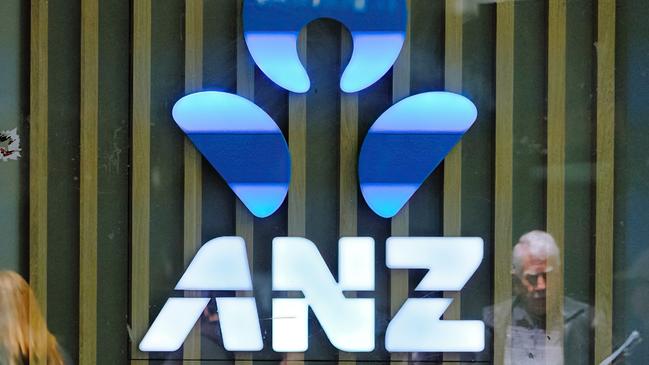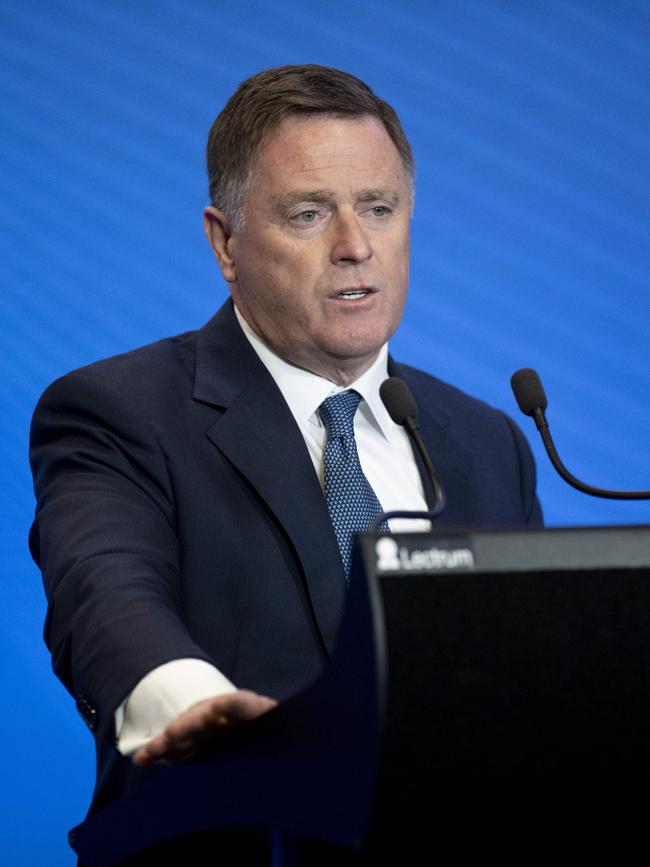How ANZ’s bond initiative went bad
ANZ’s revamp of its bond market strategy in 2022 sparked a crisis in its trading team, with some stars quitting and others resorting to risky tactics to deliver profits. Now, the corporate watchdog is investigating.

ANZ’s decision to revamp its bond market strategy in 2022 sparked a crisis within its trading team, with some stars quitting and others resorting to risky tactics to deliver profits the following year, sparking the current probe from the corporate regulator, sources have revealed.
The big four bank is under intense scrutiny over a $14bn government bond deal in April 2023. The Australian Securities & Investments Commission is assessing whether taxpayers had to pay more for the bond issuance, given strange trading activity in the futures and bond market around the pricing of the securities.
The Australian New Zealand Dollar Bond Initiative, introduced to the bank in 2022, was intended to deliver a crack squad of traders and sales staff to ANZ.
It was crafted to preserve the bank’s access to $100m in annual government bond syndicate fees, while ensuring the bank remained in pole position, with Westpac clawing its way back as chief challenger.
But, some ANZ traders in 2022 took issue with the bank’s strategy, which they saw as relying upon them to forgo profit while driving business to the sales team.
The Australian is aware of several departures in response to the bond initiative. ANZ declined to comment.
Sources said ANZ lost as much as $50m on unprofitable trades through the strategy, with the bank’s laggard sales team unable to clear the risk off the bank’s balance sheet.
The move has left ANZ in limbo, with the bank frozen out of future government deals in the wake of the risk management blow-up.
Instead of growing the bond book, ANZ’s risky business leaves the bank on the outer, despite pouring cash into unprofitable trades in a bid to pump up volumes.
In a tightly-worded statement delivered on Friday, ASIC chair Joe Longo revealed the regulator was scrutinising “suspected contraventions relating to errors in ANZ’s reporting of secondary bond market turnover data” as well as what happened in the $14bn government bond placement.
ANZ was appointed risk manager in the deal, which tasked the bank with managing the futures market for buyers of the bond by allowing them to pay for their share of the bond by exchanging futures contracts for a slice of the deal.
The deal was set to be priced at 2pm on April 19, 2023, but a curious surge in orders saw the futures market shift against the Australian Office of Financial Management.
The movement, which triggered the concern of traders in rival banks, saw the bond struck in favour of ANZ and against the Australian taxpayer.
It resulted in borrowing costs of more than $50m over the life of the bond, in excess of what could have otherwise been expected.
The Australian has spoken to several traders in the bond market who were alarmed at the unusual market movements on April 19. UBS was one market rival who was understood to have raised its concerns with the AOFM soon after.
Mr Longo told a parliamentary committee that ASIC wouldn’t look to make any call on its ANZ investigation until at least the first quarter of 2025.
ANZ’s place in the deal was managed due to its careful positioning in the months leading up, a key pillar of a strategy conceived at the top of the lender’s markets business aimed at heading off renewed rival Westpac.
Westpac has spent years in the freezer in the wake of the Royal Commission into Misconduct in the Banking, Superannuation and Financial Services Industry.
The bank’s purge of senior leadership after a mammoth $1.3bn fine meted out by financial crime regulator Austrac in September 2020 also up-ended the balance at the top of markets pile.

In the wake of Westpac’s woes, the bank was further stymied by an Australian Prudential Regulation Authority remediation plan aimed at fixing issues of “risk governance”, something many in the industry have pointed to as a yoke on the bank’s operations.
Former Deutsche Bank Australia boss Anthony Miller, now Westpac CEO designate, was picked to run Westpac’s institutional bank in October 2020.
He was soon joined by former Deutsche banker Max Bulloch, who was tapped to replace Simon Masnick, placing the trader at the top of Westpac’s financial markets business.
In a September update last year, Mr Bulloch outlined plans to make Westpac the top financial markets business in Australia, with plans to seize the top two places in league tables for government bonds.
This came after years of steady growth in Westpac markets, which placed seventh in deal league tables in 2018 and fourth in 2019.
“He’s turned that thing into an investment bank,” one market source told The Australian.
Mr Bulloch told others around him that he planned to lift Westpac to at least second in primary issuance.
Investment bank upstart Barrenjoey, populated by many ex-UBS bankers, also launched in September 2020 with eyes on the lucrative bond market.
ANZ’s markets business, under institutional bank boss Mark Whelan, has long sat high in the stack of banks competing for the lucrative Australian government bond market, as others in the market slugged it out for top billing amid a record rush of new government bond issuance.

But, by 2022, Westpac was top of the pack, with 17 deals and a combined $10.12bn in volume.
In mid-2022, in response to Westpac’s rise, ANZ’s former head of markets Shayne Collins and his soon-to-be replacement Anshul Sidher agreed on a road map to maintain the bank’s place in the rankings.
With that came access to almost $100m in government and semi-government bond syndicate fees each year.


The Australian New Zealand Dollar Bond Initiative was aimed at bringing together ANZ’s disparate trading teams along with the bank’s sales business, which was somewhat of a weakness for many domestic banks compared to sprawling international rivals.
The strategy was to be led by Singapore-based ANZ global fixed income co-head Trevor Vail.

Beneath him were ANZ financial institutions sales head Tim Maloney, eFICC markets head Luke Marriott, capital markets global head Jimmy Choi, and head of Australia and New Zealand rates, Matt Morris.
Mr Morris was criticised by ASIC in its 2016 case against ANZ over allegations the bank’s traders rigged the market for the Bank Bill Swap Rate, a key measure used to price debts in the financial system.

Court documents from ASIC show ANZ’s former head of balance sheet trading, Jason Pritchard, demanded Mr Morris set the BBSW “as high as f. kin’ possible”.
ANZ insiders said the bank had long struggled with the sales and distributions side of its markets business, with the bank often unable to sell the debts to other banks and investors.
ANZ wanted to keep the rivers of gold from its government bond deals, but it also wanted to muscle in on the growing green bonds business while preserving relationships with others in the market.
The Peter Lee Survey, long a touchstone of who’s who in the investment bank and markets world, relies on rivals ranking others in the market in what amounts to a beauty pageant for bankers.
Bond market sources noted if ANZ wasn’t No. 1, it wasn’t going to continue winning deals.
The AOFM looks to these rankings, alongside their own data, when deciding to award mandates.
In a 2022 report, ASIC warned banks misstating secondary turnover data “to gain syndication fees and ancillary business” was a key risk in bond markets.
A Freedom of Information release shows ASIC is reviewing trade data provided by ANZ to the AOFM over 2022 and 2023.
These documents also show ASIC and the AOFM met in May this year, as the regulators prepare for the arrival of exchange-traded Green Treasury bonds in 2025.
ANZ’s markets business is now under a cloud. Despite an investigation by law firm Allens, APRA has signalled its anger at the bank’s risk failures.
APRA slapped ANZ with a $250m capital penalty, on top of the bank’s existing $500m buffer, warning of the risks of governance and cultural “non-financial” risks in the bank’s markets business.

CEO Shayne Elliott pledged staff responsible for “wrongdoing” would be held responsible.
The prudential regulator recently ordered ANZ to appoint management consulting firm Oliver Wyman to review the culture of the markets team.
ANZ has made changes to its markets business, including elevating Mr Vail, an architect of the bond initiative, who is moving to Sydney.
Mr Sidher, the boss of ANZ markets, remains in Singapore.
Do you know more?
Contact David Ross: rossd@theaustralian.com.au






To join the conversation, please log in. Don't have an account? Register
Join the conversation, you are commenting as Logout